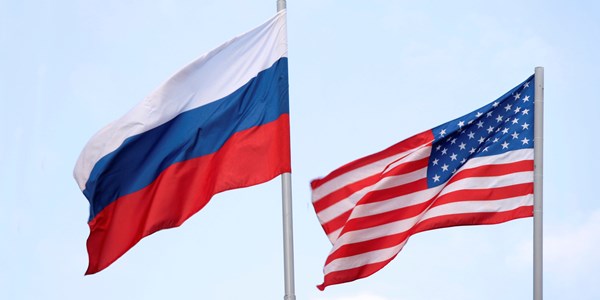Russia-US talks in Geneva bring no results
The first round of U.S.-Russian security consultations, held on Monday in Geneva, ended without concrete results on key issues.
The United States rejected the demand for non-expansion of NATO and withdrawal of NATO troops to the borders of 1997, while the Russian delegation did not give clear guarantees of the withdrawal of troops from the Ukrainian borders, Deputy Secretary of State Wendy Sherman said at a briefing after 8 hours of talks.
Russian Deputy Foreign Minister Sergei Ryabkov, who represented Russia, also admitted that the main issues are "hanging in the air", and the Americans are not yet showing readiness to meet Moscow’s demands.
According to Ryabkov, the three key "points" from which Moscow is not ready to retreat, are the non-expansion of NATO, the refusal to deploy strike weapons within the reach of the Russian Federation and ending "military development" of the countries that joined NATO after 1997.
"We have made it quite clear that without progress in these three key, irrevocable, integral, necessary for us areas, work on other aspects, with all its importance, will be in question," Ryabkov said.
He added that the talks were "businesslike" and "professional," and the American side "very seriously approached the Russian proposals." "But, nevertheless, the main issues are hanging in the air, and we do not see that the American side has an understanding of the imperativeness of their solution in a way that suits us," Ryabkov stated.
The Russian deputy foreign minister added that the accession of Ukraine and Georgia to NATO is a matter of national security for Russia. "We would like the formula adopted by the Bucharest summit in 2008 to be withdrawn at the NATO Madrid summit. Neither Ukraine nor Georgia should become members of the North Atlantic Alliance. We need iron, legal obligations, not promises, but guarantees," Ryabkov added.
However, this topic, as well as the withdrawal of NATO to the 1997 borders, "causes misunderstanding" of the United States, he added.
Sherman, who held a briefing in parallel with Ryabkov, confirmed that the NATO principle of "open doors" remains key, and no one is going to revise it. "We will not abandon bilateral cooperation with sovereign states that want to cooperate with the United States," the Deputy Secretary of State stressed, adding that the United States is not ready to discuss Ukraine without the participation of Ukraine, NATO without NATO and Europe without Europe.
The Russian delegation, according to Sherman, during the negotiations did not give a direct response to calls for de-escalation of the situation around Ukraine, near the borders of which, according to American intelligence, a 100,000-strong group of Russian troops has been deployed.
According to Ryabkov, combat training activities for troops are carried out within Russian territory, and therefore there is no reason to fear an escalation. "We explained to our colleagues that we have no plans and intentions to attack Ukraine," the Deputy Foreign Minister said.
But instead of words, Russia could prove it by "bringing the troops back to their permanent locations," Sherman retorted.
According to her, so far there is no question of any specific agreements in principle. The purpose of the contacts is to "understand each other's concerns," she said, adding that it was impossible to resolve all issues in a short time - in one day or several weeks.
But delaying consultations does not suit Russia anymore. "It's not about months, it's not about weeks, we need an urgent response, we need a quick response," Ryabkov said.
"We call on the United States to maximize its responsibility at the moment," Ryabkov said. "The risks associated with a possible intense confrontation cannot be underestimated."
On January 12, Brussels will host the second round of consultations at the level of the RUSSIA-NATO Council, whose work was de facto frozen after the annexation of Crimea in 2014.
Official representatives of the Alliance do not see any special prospects for this meeting. A number of Russia's proposals for security guarantees are unacceptable, NATO Deputy Secretary General Mircea Geoana said on Monday. Geoana noted that the presented proposals on security guarantees contain provisions that "contradict the fundamental principles and values of NATO, and that such attempts by third countries to interfere in the foreign and security policies of other sovereign countries are unacceptable."
